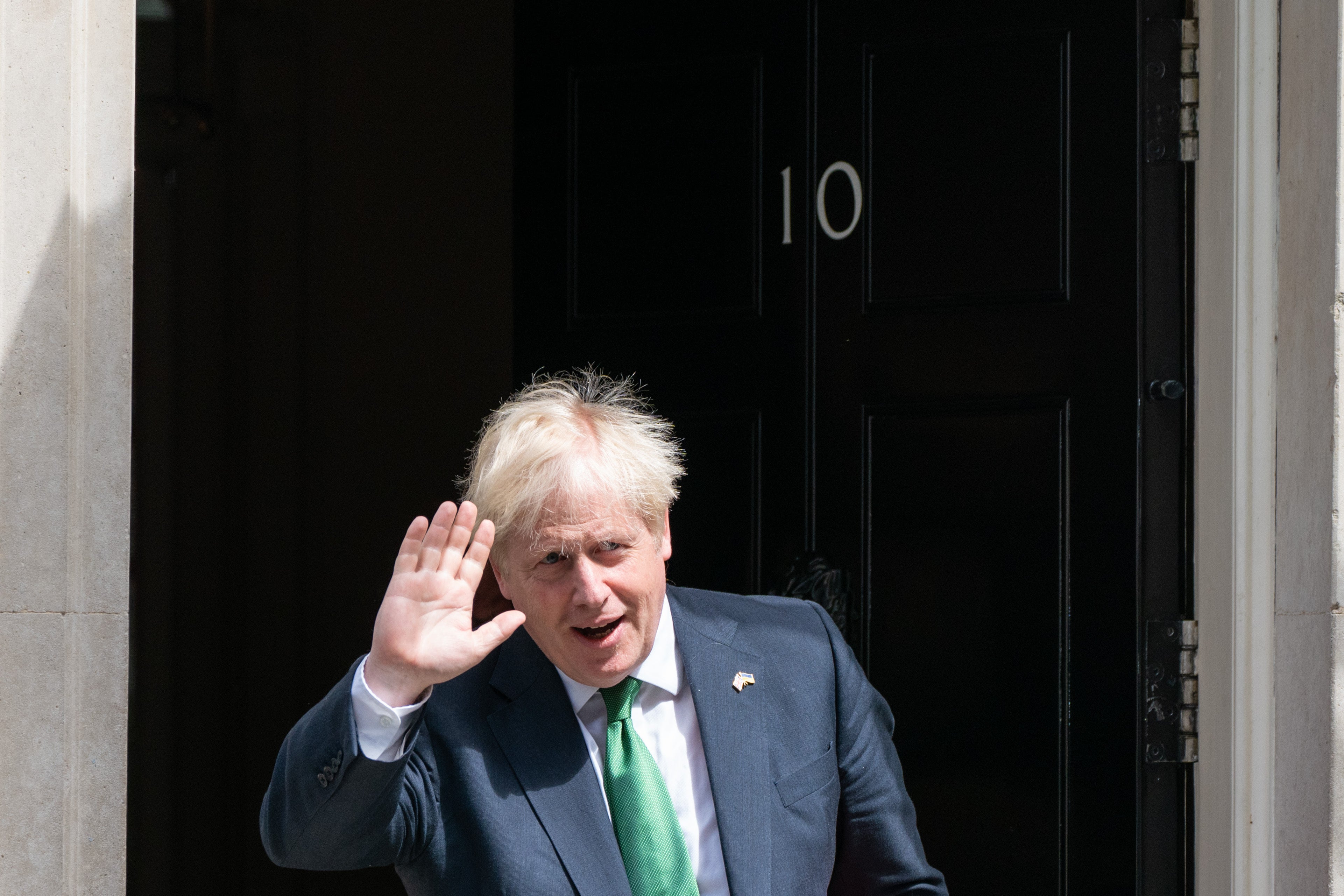Boris Johnson could avoid the big mistake of previously ousted PMs, but it’s unlikely
Boris Johnson will not resist the temptation to wait for the call to return that will never come, writes Andrew Grice


I’ve now watched seven prime ministers depart the stage in my time at Westminster, and felt some sympathy at a human level for all of them except one. Boris Johnson’s actions since being toppled have been the polar opposite of the dignified exits managed by Margaret Thatcher, John Major, Tony Blair, Gordon Brown, David Cameron and Theresa May.
I’m sad to be feeling like this. As a fellow journalist, I knew Johnson well enough to straighten his tie for the photo when I interviewed him as he ran for re-election as London mayor. “Bloody Independent smartening me up now!” he laughed. I didn’t realise the wonky tie was part of his act.
Unlike his predecessors, Johnson has shown not an ounce of contrition and not apologised for his errors of judgement, let alone acknowledged that he was economical with the truth. He clung to power for longer than any other prime minister would have done in the same circumstances – even, briefly, after the resignations of 50 ministers. As ever, he was hoping something would turn up; for the first time, it didn’t.
He accepted his fate without grace. At the last minute, he sacked Michael Gove, a rare strong minister in a cabinet chosen for its weakness, who had put flesh on his “levelling up” slogan – in revenge for Gove telling the world in 2016 that Johnson was not up to being prime minister.
In Johnson’s delusional mind, his downfall was somebody else’s fault in general, and Rishi Sunak’s fault in particular, for plotting against him for months – which is news to the Tory MPs who urged Sunak to move against Johnson and were rebuffed.
Boris Johnson’s fall was all his own making. Without an own goal too far – lying over what he knew about allegations against Chris Pincher, his deputy chief whip – Johnson would this weekend be toasting his making it to the Commons summer recess and living to fight another day in the autumn (though I think Tory MPs would have booted him out by Christmas).
Instead, he has begun to weave his betrayal theory. Allies always insisted he was not the “British Trump,” as the former US president called him. But he has acted like Trump in the past two weeks, ludicrously telling MPs the “deep state” would try to take the UK back into the EU. His swansong at Prime Minister’s Questions hinted at a comeback, as his hero Winston Churchill managed in 1951 and as Trump hopes to do in 2024. Johnson casts himself as a lost leader who thinks his party will see the terrible error of its ways and beg him to return.
Unfortunately, Trump might achieve it. Fortunately, Johnson won’t: as Tory MPs tell me, they know what the public would make of a party that killed its leader for lying and incompetence and then reappointed him PM.
Johnson didn’t want to delegate, unlike in his time as mayor. His three Downing Street set-ups all ended in failure, but the problem was at the very top. Yet it didn’t have to end like this. He could have celebrated his main achievements: getting Brexit over the line (if not done); winning the Tories’ biggest majority since Thatcher in 1987; his strong leadership on Ukraine (something absent from his domestic agenda), while admitting his mistakes meant it was time for others to complete his “levelling up” mission. Instead, he drafts his legacy as “mission largely accomplished, for now” and, in a remarkable 2,500-word written Commons statement, claimed: “Across these five fronts – Brexit, Covid, public services, the economy and the world stage – this government has delivered.”
Tory MPs know this is another porkie; they were tired of headline-grabbing policies that never materialised. Even his preferred successor, Liz Truss, gives the game away by promising “delivery, delivery, delivery”. She or Rishi Sunak will also have the daunting task of rebuilding the trust in the Tories and politics in general destroyed by Johnson. History will record his Brexit achievement, but also that he was brought down by scandals and rule-breaking of his own making.
He will remain a big figure, big enough to cast a shadow over the leadership election and his successor. The speeches (at which he will be brilliant), memoirs, other books, newspaper columns and TV appearances will occupy him; he will enjoy a sort of power without any pretence of responsibility. But it probably won’t satisfy him; there is too much unfinished business in politics.
To keep up to speed with all the latest opinions and comment, sign up to our free weekly Voices Dispatches newsletter by clicking here
His behaviour so far suggests he will meddle. His views on anything will make headlines; he will still get a buzz from being the centre of attention. He might reprise his former role, stalking the party leader at the Tory conference by addressing those who adore him at packed fringe meetings, playing the king over the water. It won’t work, because he has already been king.
Johnson should learn lessons from two previous Tory prime ministers ousted by their party. Edward Heath carped bitterly from the sidelines at Thatcher, but damaged himself more than her. Thatcher did the same, appointing herself as Major’s “back-seat driver”.
There’s still time (just) for Johnson to avoid the same trap. Major offers the right model – occasional interventions on big issues, which carry much more weight than constant sniping. Sadly, Johnson’s actions suggest he will not resist the temptation to return to the role of disruptor as he embellishes his betrayal theory and waits for the call to return that will never come.
Join our commenting forum
Join thought-provoking conversations, follow other Independent readers and see their replies
Comments
Bookmark popover
Removed from bookmarks